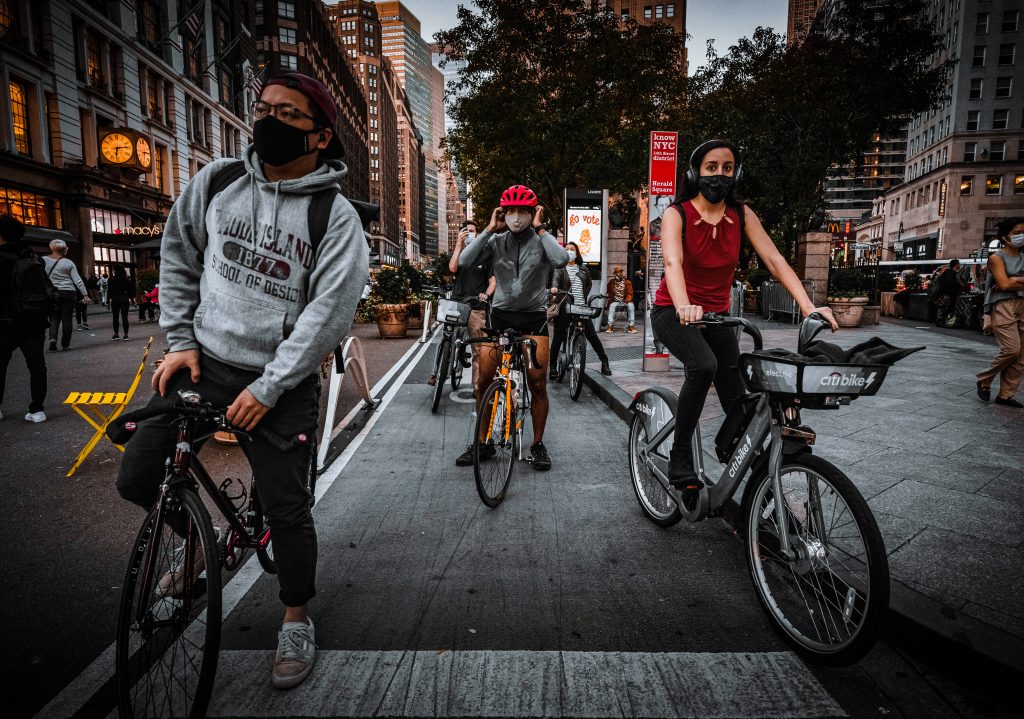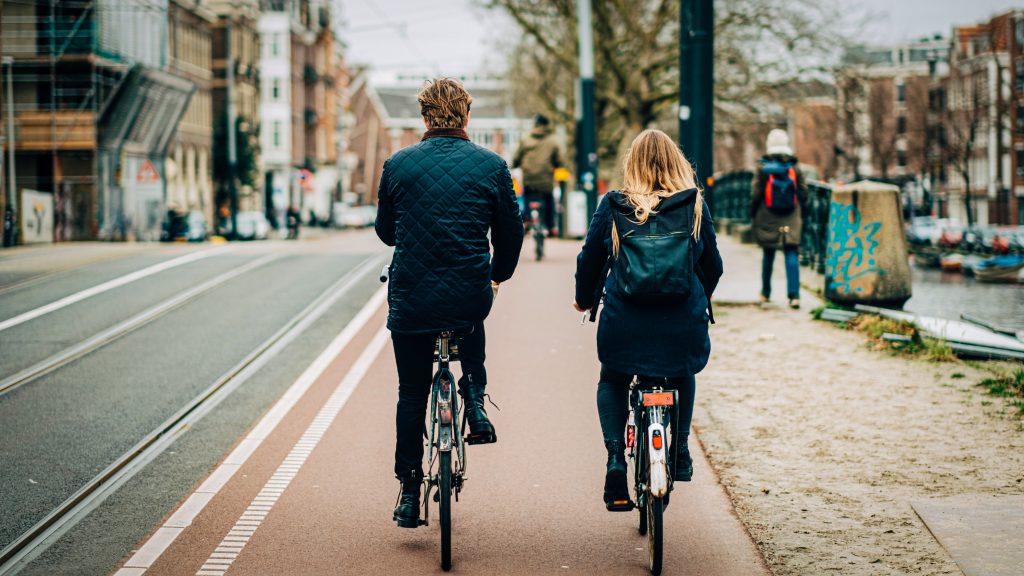Why not wear a helmet, if it could save your life? Aren’t bicycle helmet laws just victim blaming, rather than focusing on the real issue of unsafe drivers? We’ve made the case for both sides, so cities have all the facts when making their decision.
The debate around mandatory bicycle helmets can quickly become emotive, complex and ambiguous due to conflicting research. What’s important is understanding both angles and the reasoning behind them. Whilst this article doesn’t offer a conclusion, it does outline both compelling cases so readers can reach a judgment for themselves.
The Case for Mandatory Bicycle Helmets
It’s a simple truth that, if you fall off your bicycle, wearing a bicycle helmet could save your life. Studies show that helmets protect individuals from head injuries: a major meta-analysis study showed helmets prevented serious injury or fatality by 60%, another study which stimulated accidents found helmets reduced the risk of skull fracture by 98% , whilst a study of 119 cyclist fatalities concluded that 37% would have survived, had they worn a helmet.
Helmets may be a hassle to carry around, uncomfortable to wear and frustrating if you’ve styled your hair – but none of those drawbacks compare to the life-saving protection that helmets offer.
Rebecca Oaten knows this all too well. Labelled ‘The Helmet Lady’, she led New Zealand’s campaign to mandate bicycle helmets in the 1990s after her twelve-year-old son was left paralysed from the neck down and unable to speak from being knocked off his bike. Had he worn a helmet, she believes his suffering would have been reduced.
“How many people would take a laptop, balance it on a bike and set off riding across town in the middle of traffic. You know it’s going to smash.” Oaten told Stuff News. “The human brain is our computer and once that’s damaged there’s no fixing it, it’s done.”
Since the mandatory law, 94% of New Zealand’s cyclists wear helmets and cycling head injuries were reduced by 19% over the first three years. Hence, the inconvenience of wearing bicycle helmets is outweighed by the protection it offers. It’s the same as seatbelts: they’re a nuisance, but a live-saving nuisance. Even if a mandatory helmet law only saves one life, surely that is enough to implement it.

The Case Against Mandatory Bicycle Helmets
There are several prongs to the argument that mandatory bicycle helmets are a poor policy choice. The first is that mandatory helmets miss the point: a bicycle helmet will not protect you against a serious collision with a car, its predominantly designed for stationary falls onto concrete – and it only protects your head. Helmets are a post-crash secondary prevention; the focus needs to be on primary prevention through safer roads.
One of the safest places in the world to cycle is the Netherlands, yet people rarely wear helmets because motorists face speed restrictions and the cycling infrastructure reduces collisions. Rebecca Oaten’s son was hit by a car: surely the focus should be on better driving education, not the victim’s attire.
You could say that helmets and safe road measures aren’t mutually exclusive, so why not do both? This brings us to the second argument. Implementing helmet legislation puts people off cycling. There was a 60% reduction in cyclists in Canada, 36% in Melbourne and New South Wales and 51% in New Zealand since helmets were made a legal requirement.
By mandating helmets, it warns the population that cycling is a dangerous endeavour and that you need to protect yourself, should you risk it. Yet, the chances of being hit as a cyclist are roughly the same for pedestrians. If less people are willing to cycle, then the benefits of increased physical activity and reduced car pollution are lost. Given the death toll caused by inactivity, this outweighs the small benefits gained by the mandatory law.

The last prong is that bicycle helmets might not actually be that effective. Some studies show that wearing a bicycle helmet means cars overtake with less distance than without helmets as they deem the cyclist to be more protected. Moreover, any reduction in fatality rates following mandatory laws may simply be a reflection of the decrease in cycling per se. Most significantly, cyclists are safest when they travel in numbers, so the reduction in cyclists caused by the mandatory law makes cycling more dangerous.
All in all, the bigger picture needs to be examined. If an individual falls off their bike, a helmet is, without doubt, a benefit. But in general, it will have limited effect if you are cycling in fast, heavily used roads. A mandatory law shifts the focus onto cyclists, not road safety, and deters people from considering cycling in the future.
In Conclusion…
In many cities, the decision whether to make mandatory bicycle helmet laws is still in deliberation. Should helmets, like seatbelts, be implemented as a safety precaution for citizens, or are the repercussions of reduced cycling uptake too great? It’s a tough decision, but knowing the crux of both sides is the first best step to making any choice.



Clearly, when you google “helmets save lives, RIGHT??!”, you end up finding the Culture of Fear angle presented at the beginning of this weakly-researched article. Which serves little purpose. Luckily, the debate is in a more advanced place these days so we don’t see articles like this much anymore.
Here’s a refresher: https://www.youtube.com/watch?v=07o-TASvIxY
Hi Mikael, thank you for your comment! We’re happy to see you on CityChangers.org. While we in fact believe the multiple sources referenced in this article provide a balanced picture of the main arguments – as is the objective in this case – we do encourage and appreciate dialogue among our community. We would be pleased to have you share further resources that you feel will offer fellow CityChangers a deeper understanding of the topic, and invite you to write a guest piece for our platform to showcase your viewpoint/findings in a bit more detail!